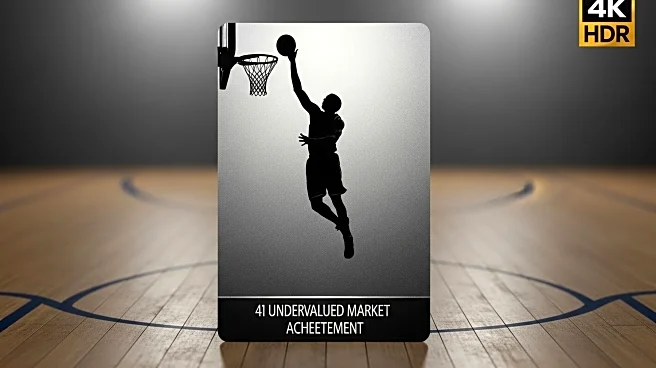What is the story about?
What's Happening?
A'ja Wilson, a prominent WNBA player, has achieved significant milestones in her career, including winning league MVP, Finals MVP, and Defensive Player of the Year in the same season. Despite these accomplishments, her sports card market does not reflect her success, with collectors largely overlooking her cards. Wilson's rookie card, released by Rittenhouse in 2018, is part of a limited factory set of 500. The market for WNBA cards is dominated by newer players like Caitlin Clark, Cameron Brink, and Angel Reese, whose cards have seen higher sales volumes. Wilson's cards, although limited in number, have not reached the same public record sales as her younger counterparts.
Why It's Important?
The undervaluation of A'ja Wilson's sports cards highlights a broader issue within the sports card hobby, where female athletes, particularly in the WNBA, are often underappreciated. This disparity in card market value can impact the recognition and financial opportunities for female athletes. As the WNBA continues to grow in popularity, there is potential for Wilson's cards to gain more recognition and value, reflecting her contributions to the sport. The current situation underscores the need for greater awareness and appreciation of female athletes in the collectibles market.
What's Next?
As the WNBA card market expands, there may be increased interest in A'ja Wilson's cards, potentially leading to higher sales and recognition. Collectors and fans might begin to appreciate her achievements more, driving demand for her limited edition cards. The growth of the WNBA and its fan base could play a crucial role in elevating Wilson's market presence, aligning her card value with her on-court success.
Beyond the Headlines
The undervaluation of Wilson's cards raises questions about gender equity in sports collectibles. It reflects broader societal trends where female athletes often receive less recognition and financial reward compared to their male counterparts. Addressing this imbalance could lead to more equitable representation and valuation in the sports card industry.

















